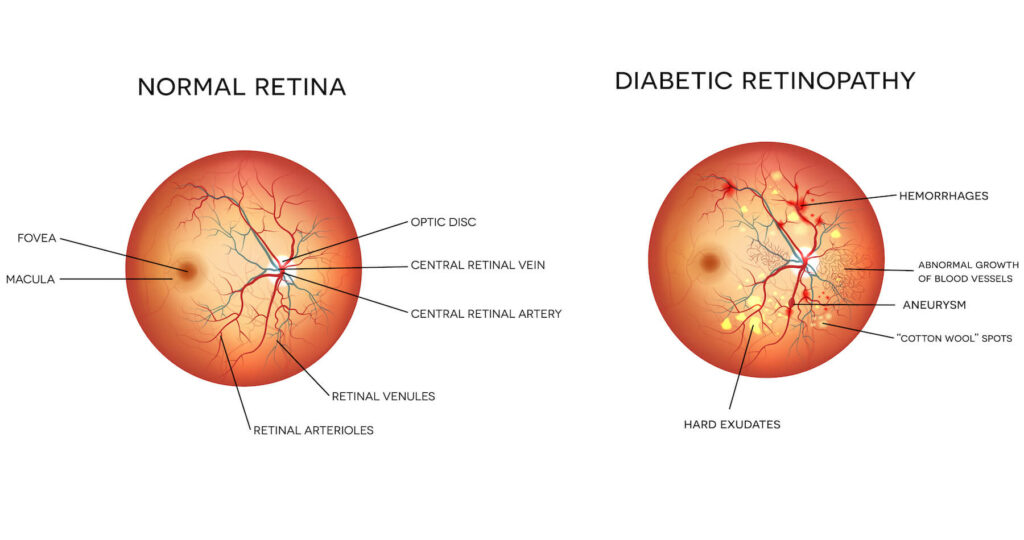Diabetic Eye Disease

If you have been diagnosed with diabetes or have a family history of the disease Dr. Christopher Larson, Dr. Todd Larson, and Dr. Lavey recommend an eye health evaluation annually to prevent loss of vision. It is not uncommon for the first signs of diseases such as diabetes to first be detected during an eye exam.
Diabetic Retinopathy
Diabetic Retinopathy is a potentially blinding complication of diabetes affecting over half of Americans diagnosed with diabetes. As a result of the body’s inability to use and store sugars the tiny blood vessels that nourish the retina are affected. Without treatment damage to the retina the light-sensitive tissue lining the back portion of the eye that transmits visual images to the brain can result in severe loss of vision and ultimately blindness.
What Causes Diabetic Retinopathy?
Fluctuation in blood sugar levels in diabetic patients leads to an increased risk for diabetic retinopathy. In the early stages vessels in the retina swell and begin to leak into surrounding tissue. Vision is rarely affected during this stage. In the more advanced stages new blood vessels begin to grow on the retina. These abnormal blood vessels cause blurred vision resulting in the formation of scar tissue that can lead to permanent vision loss.

Common Symptoms
- Blurry Vision
- Fluctuating Vision Affecting Side & Central Vision
- Spots in the Field of Vision
- Cloudy Vision
- Blind Spots
How Is Diabetic Retinopathy Detected?
Diabetic Retinopathy can be detected during a comprehensive eye examination. At this time Dr. Christopher Larson, Dr. Todd Larson, or Dr. Lavey will examine the health of your retina with a special instrument called an Ophthalmoscope. Once diabetic retinopathy is detected he may recommend additional testing to assess the progression of the disease and determine treatment. Individuals who have been diagnosed with diabetes or have a family history of the disease should have their eyes examined on a regular basis to prevent loss of vision.



